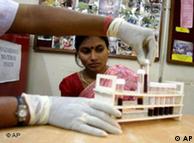 By Gema
By Gema KINSHASA, Dec.14 (Xinhua) -- During his six-day visit since Thursday in Kinshasa, the capital of the Democratic Republic of Congo (DRC), the president of the International Criminal Court (ICC), Justice Sang-Hyun Song, reiterated the demand that the DRC government transfer Bosco Ntaganda to the Hague.
He revealed the concern of this institution on Thursday during a parliamentary conference on justice and peace in the Great Lakes region and Central African region which was being held in the Congolese capital.
The ICC president pointed out the importance of international justice system in the DRC, especially the cases concerning the heads of rebel movements who are also the troublemakers. He indicated that the question of justice and peace cannot be left to one individual alone and that the victims of very serious crimes are the ordinary people.
"It's a must that the perpetrators are held accountable for their actions," he said.
Justice Song, however, welcomed the changes witnessed in recent years.
"I am speaking of the contribution of the ICC to bringing justice to this country and in the two neighboring countries, meaning Uganda and the Central African Republic," he noted.
He said he was convinced that sooner or later, justice, whether delivered by the ICC or the national courts, will be able to bring peace back to the region.
During his stay, the president of the highest international court will meet with the DRC officials, members of the civil society and the communities affected by conflicts in the eastern Ituri district.
His mission involves a working meeting with the Congolese minister of foreign affairs, the head of UN in the DRC (MONUC), and the members of the diplomatic bodies.
After Kinshasa, Song will visit Bunia in Ituri where he will meet with the leaders of local authorities, the magistrates of local courts, members of local human rights organizations, the journalists, as well as the victims of the criminal activities which are currently being investigated by the ICC.
OVERVIEW OF BOSCO NTAGANDA.
Ntaganda is being sought by the ICC which suspects him of having proceeded to enroll children as young as 15 years old in the ranks of the Union of Congolese Patriots (UCP) of Thomas Lubanga, who is facing justice at the ICC.
After the arrest and transfer of Lubanga to the ICC, Ntaganda rejoined the Congolese National Congress for the Defense of the People (CNDP) of Laurent Nkunda, where he became the chief of staff.
In January, he rejoined the Kinshasa government and was integrated in the armed forces of the DRC (FARDC) with the rank of general, angering the leaders of ICC who are still seeking his transfer.
The demand by the ICC president came after that of the special counsellor to the ICC prosecutor, Beatrice Lefrapere, who made the same request on July 5.
"It's high time the DRC government arrested Ntaganda and delivered him to the ICC," she indicated at that time.
But the Congolese minister for Communication and Media who is also the government spokesman, Lambert Mende, declared that everything will be done according to the schedule already given to the ICC.
Last month, Mende clearly stated that the DRC government "will conform to the requirements of the Rome Statute for which the DRC is a signatory. But for the moment, security of the eastern parts of the country is the priority." The same stand was voiced by in February by Congolese President Joseph Kabila.
Kabila, speaking on the issue of Ntaganda, said the choice is very clear: peace and security of North Kivu province comes before anything else.
Ntaganda's shift to FARDC dealt a heavy blow to Nkunda's CNDP, which was advancing in late 2008 and early 2009 to the gate of Goma, the provincial capital in North Kivu, posing a real threat not only to the DRC government, but the entire Great Lakes region, where the 1998-2003 Congo war sucked in several neighboring countries.
The CNDP was routed in a join military operation between the DRC and Rwanda, which arrested Nkunda after he fled across the border. The DRC has since defused the major flare in the troubled east although insurgents are still active in small groups.
















.jpg)






